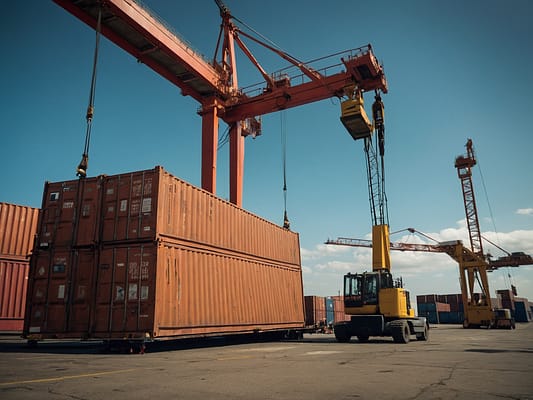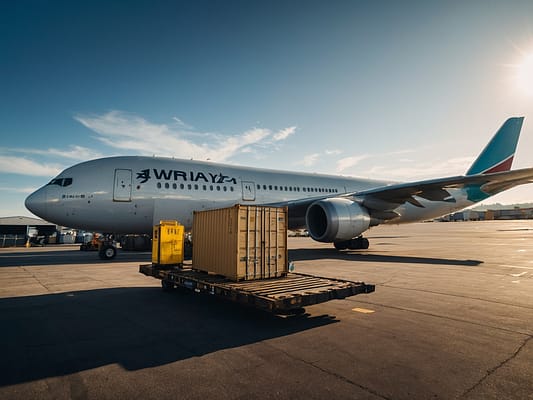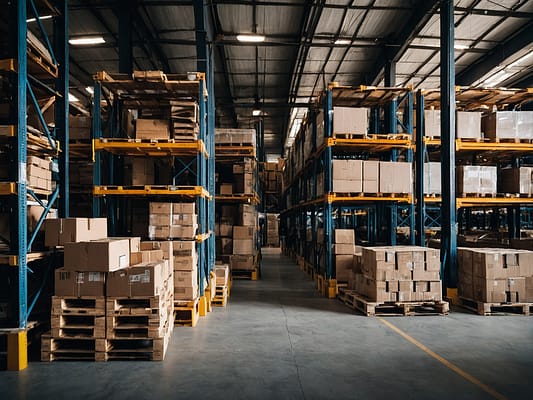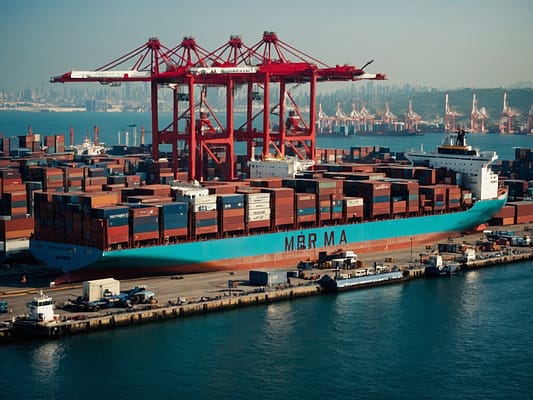Choosing the Right Freight Forwarder for Your Business Needs
Every shipment tells a story. Whether it’s the latest tech gadget heading to a retailer across the ocean or essential medical supplies racing to meet a critical deadline, the journey of goods is complex and often unpredictable. Behind the scenes, a freight forwarder can make or break that journey—a pivotal partner in ensuring your cargo arrives safely and efficiently. But how do you choose the right one for your business?
This isn’t a decision to rush. Selecting a freight forwarder is about building a relationship with a logistics expert who understands your unique needs and can adapt to the challenges of today’s global trade landscape. Here’s how to get it right.
Step 1: Understand Your Shipping Needs
Before reaching out to freight forwarders, take a hard look at your business’s shipping requirements. Consider factors like:
Shipping Volume: Are you moving a handful of shipments per month or managing large-scale logistics?
Type of Goods: Are your products perishable, oversized, or hazardous? For instance, a food supplier will need a forwarder experienced in refrigerated transport, while an electronics company might prioritize anti-theft measures.
Destination Regions: Are you shipping domestically, internationally, or both? Some forwarders specialize in certain regions or countries, and this can significantly streamline customs procedures.
Specific Services: Do you need door-to-door service, customs clearance, warehousing, or help with compliance? Clearly define these requirements to find a forwarder who can meet them.
Clarity here will save time and help you identify forwarders that align with your specific needs.
Step 2: Evaluate Their Network and Expertise
A freight forwarder’s network is their lifeline. The more extensive their connections with carriers, ports, and customs agencies, the better equipped they are to handle your shipments. Here’s what to look for:
Global Reach: Ensure they have a strong presence in your key markets. A forwarder with established offices in your destination countries can often resolve issues faster.
Specialization: Some forwarders have expertise in specific industries, such as pharmaceuticals, automotive, or retail. For instance, a forwarder specializing in pharmaceutical goods will be familiar with temperature-controlled shipping and regulatory compliance.
Experience: Longevity in the business often translates to better problem-solving skills and established relationships. Ask about their experience with similar clients to gauge their expertise.
Ask for case studies or examples of businesses similar to yours that they’ve successfully supported.
Step 3: Check Their Credentials
Freight forwarding is a heavily regulated industry, and the right partner should have all the necessary licenses and certifications. These might include:
Customs Broker License: Critical for handling customs clearance efficiently and avoiding delays.
Memberships in Trade Associations: Look for affiliations with organizations like the International Federation of Freight Forwarders Associations (FIATA) or regional equivalents. These memberships often indicate a commitment to best practices.
Insurance Coverage: Verify that they offer cargo insurance to protect your goods during transit. This can be especially critical for high-value shipments.
A credible forwarder won’t shy away from providing proof of these qualifications. Additionally, ask them about their compliance with international trade regulations, such as C-TPAT or AEO.












Step 4: Assess Technology and Communication
In today’s digital age, the tools and systems your freight forwarder uses can make or break your logistics operations. Ask about:
Tracking Capabilities: Can you monitor your shipments in real-time? Platforms with GPS-enabled tracking and predictive analytics can provide peace of mind.
Automation: Do they offer tools for automated documentation or billing? Streamlining paperwork can save time and reduce errors.
Reporting Tools: Can they provide insights into shipping costs, delays, and trends? Comprehensive reporting tools can help you identify areas for cost savings and efficiency improvements.
Equally important is their communication style. Do they respond promptly? Are they proactive in updating you about delays or changes? Transparent and reliable communication should be non-negotiable. Look for a forwarder who assigns a dedicated account manager to your business for consistent support.
Step 5: Compare Costs Wisely
While cost is a key factor, it shouldn’t be the sole determinant. Cheap services often come at the expense of reliability and quality. When evaluating quotes, consider:
What’s Included: Ensure there are no hidden fees for things like documentation or customs handling. Request a detailed breakdown of costs.
Value-Added Services: Some forwarders might charge more but offer perks like faster customs clearance, better cargo insurance, or specialized handling for fragile goods.
Flexibility: Can they scale their services as your business grows? A forwarder that can adapt to your evolving needs will save you the trouble of switching partners later.
Get detailed quotes and don’t hesitate to ask questions about unclear charges. Also, compare quotes within the context of the forwarder’s reputation and service quality.
Step 6: Read Reviews and Ask for References
Before committing, do your homework. Look for reviews on trusted platforms, and ask the forwarder for references from existing clients. Talking to businesses that have worked with them can reveal insights you might not find online.
Questions to ask references:
How responsive is the forwarder during issues?
Have they experienced delays, and how were they handled?
Would they recommend this forwarder?
You might also consider joining industry forums or trade groups to seek recommendations from peers.
Step 7: Start Small and Build Trust
Once you’ve chosen a forwarder, don’t put all your eggs in one basket immediately. Start with a smaller shipment to test their services. Monitor their performance, communication, and problem-solving abilities before scaling up. Use this trial period to establish clear expectations and evaluate their reliability.
Leverage Relationships for Better Terms
As you build trust with your freight forwarder, explore opportunities to negotiate better terms or discounts. A strong relationship can lead to preferential treatment during peak shipping seasons or faster resolution of issues.
Choosing the right freight forwarder is about more than just logistics; it’s about creating a partnership that supports your business’s growth and resilience. Take the time to evaluate your options thoroughly and prioritize reliability, transparency, and expertise. The right choice today can save you from headaches tomorrow and keep your supply chain running smoothly.
By following these steps and continuously assessing your forwarder’s performance, you’ll ensure that your logistics partner remains a valuable asset to your business.



